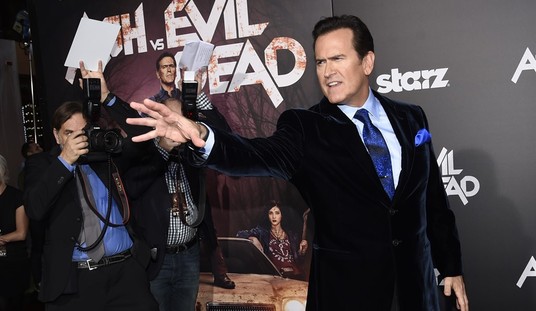From the diaries by Leon. Although in America we would not want to identify with many of the “right” leaning movements identified in this piece, there is no doubt political winds are shifting in Europe.
Old school socialists may allege that the credit crunch once and for all proved that free market capitalism and globalization had failed yet across Europe, a new generation of liberal and conservative politicians is stepping up who favor even smaller government.
In the wake of the financial crisis, social democrat and labor parties across Europe lost ground to both their larger conservative counterparts as well as third or fourth party liberals who championed deregulation and austerity. As countries braced for spending cuts this summer, from Britain to the Netherlands to the Czech Republic, voters had greater confidence in candidates who were frank about the need to slash public spending than politicians on the left who resisted any suggestion of welfare reform.
In Germany, the social democrats lost dramatically in 2009, surrendering almost a third of their seats in parliament while the liberal Free Democrats fared well. Chancellor Angela Merkel’s christian democrats remained in power but have since been able to govern on the right and implement necessary spending.
Defense minister Karl-Theodor zu Guttenberg is routinely mentioned as a possible successor of Merkel’s as head of the christian democrats in Germany and his popularity would almost certainly assure him of electoral gains. He cultivates the image of a moderate and a centrist, rather similar to the forward looking cosmopolitanism of the Free Democrats though with an aristocratic streak. From Bavaria, Guttenberg actually belongs to the slightly more leftist affiliate of the main conservative party which may allow him to mend some minor discord between the two on immigration policy.
In Britain, David Cameron’s Conservatives returned to power on a similar platform, promising to rein in spending whereas Labor insisted that government had to continue to direct the economy if it weren’t to imperil a still fragile recovery. In coalition with the centrist Liberal Democrats, Cameron’s administration is committed to entitlement reform and has started to cut spending across the board—except for health care and foreign aid.
The exemptions are characteristic of Cameron’s approach to conservatism. While he is urging Britons to take on greater responsibility for their lives, reminding them that government cannot be there for them at every turn, Cameron does not present himself as a free market purist. Government is nevertheless expected to contract more seriously in the years ahead than it did during Margaret Thatcher’s reign in the 1980s.
Cameron’s Dutch counterpart Mark Rutte also believes that government should be less expansive. His right wing coalition, with the Liberal Party, for the first time in its history, as the senior partner, is cutting in foreign aid budget, slashing subsidies for arts and culture and it intends to rein in welfare spending.
The political right has been on the rise in the Netherlands for quite some time as the anti-establishment Freedom Party of Geert Wilders continues to prosper in the polls. Across Europe populism is gaining strength in fact, forcing liberals and conservatives on the right to adopt more stringent positions on immigration and security.
Anti-immigration parties are already strong in Denmark and Norway and earlier this year, the nationalist Sweden Democrats managed to win parliamentary seats for the first time in their existence. The response from the liberal side has been quite the opposite from that on the rest of the continent however as Prime Minister John Fredrik Reinfeldt moved his Moderate Party to the center in order to appeal to formerly leftist voters. Like David Cameron, who has vowed to protect the British National Health Service from austerity measures, Reinfeldt presents himself as the guardian of Sweden’s pervasive welfare state despite his party’s traditional support for deregulation, privatizations and tax cuts.
Such pragmatism has been less pronounced in Central Europe where this summer several countries took a right turn. In both the Czech Republic and Slovakia relative newcomers did exceptionally well, including Most-Híd and Freedom and Solidarity in Slovakia, centrist and neoliberal respectively, led by christian democrat Prime Minister Iveta Radičová as well as TOP 09 in the neighboring Czech Republic which has been particularly popular with urban and young voters.
TOP 09, which boasts “Tradition, Responsibility, Prosperity” as its slogan and was founded just last year by aristocratic foreign affairs minister Prince Karel Schwarzenberg, is both highly in favor of European integration and a proponent of further market liberalization. It formed a government with the similarly capitalist thought slightly more conservative Civic Democratic Party of President Václav Klaus who is an economist by training and an admirer of Margaret Thatcher’s, as well as another newcomer, Public Affairs, which campaigned on transparency in government and fiscal restraint.
A certain degree of pragmatism and centrist appeal may have helped propel pro-market parties to power in northwestern Europe but there is a danger in this strategy. Without coherent vision about the future and proper role of government in people’s lives, conservatives and liberals now often in coalition risk alienating part of their newfound electorate, if not to outspoken socialist then probably to populists who used to reside on the fringes of national politics but now offer a safe haven in tradition and Euroscepticism.
The fate of small government conservatives and neoliberals in Central Europe is evidence that electoral success for politicians does not necessarily depend on their ability or willingness to compromise. Even if people increasingly vote on issues while party loyalty is scarce, they will always appreciate ideological honesty and clarity from their leaders.














Join the conversation as a VIP Member